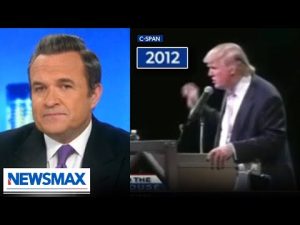The spotlight is shining brightly on the race for a seat on the Wisconsin Supreme Court, an election that ostensibly remains nonpartisan but is heavily draped in ideological banners. Democrats are sensing an opportunity amid what they see as a voter backlash against President Trump’s robust use of executive action. This race has commanded national attention, partly due to some interesting revelations and claims being slung between the candidates, akin to a high-stakes political soap opera. The twist? It seems the Wisconsin Supreme Court seat is being viewed by some as a stepping stone to shifting congressional power in favor of the Democrats.
Judge Brad Shimmel, who is in the midst of this contentious race, shared his bewilderment over the election’s importance gaining such momentum. According to him, his opponent was caught up in a bit of an embarrassing moment courtesy of an email discovered by the New York Times. Apparently, this email invited big-ticket donors to learn how flipping the Wisconsin Supreme Court could turn Republican congressional districts Democrat. Adding fuel to the fire, the House Minority Leader mentioned similar intentions, sparking a flood of campaign money from outside the state.
In this frenzied financial landscape, Shimmel faces accusations from his rival about receiving support from none other than Elon Musk. The rumor mill churns with claims that Musk, whose company Tesla, has a lawsuit that might end up in the state’s highest court, is seeking influence. Shimmel, however, is quick to dismiss these accusations like water off a duck’s back. He points out that he isn’t running to fulfill the whims of any donor, be it Musk or anyone else. He insists he’s committed to being an impartial upholder of the law, backed by his solid record as a prosecutor and a judge.
Shimmel’s opponent hasn’t held back, accusing him of having a track record of leniency towards offenders in serious crimes, including domestic violence and child abuse. The judge humorously addresses these allegations, if only to point out the seemingly novel concept of “liberals lying in campaigns.” He clarifies that in every case cited, he made recommendations for longer sentences which were, interestingly, not followed by judges, or that he at least adhered to the recommendations of the prosecuting district attorneys.
Throughout all this, Shimmel maintains his stance as a proponent of adhering to state law and guarding against activist judicial tendencies, which seems to resonate well with his core supporters. Meanwhile, his opponent’s camp declined to provide their rebuttal in this particular news segment, leaving an interesting gap in the dialogue. Whether this strategic silence will aid or harm their efforts is yet to be seen as the race continues to unfold on the national stage. As the ballots are cast, one thing is certain: this is more than just a race for a seat on the Wisconsin Supreme Court; it’s a battle emblematic of the broader ideological war playing out across America.







